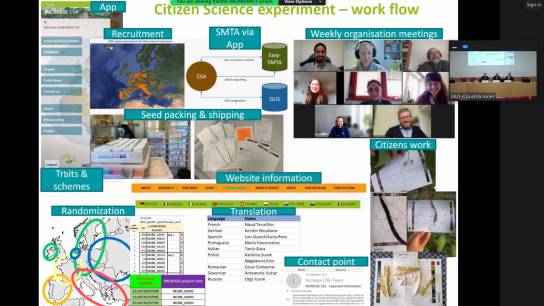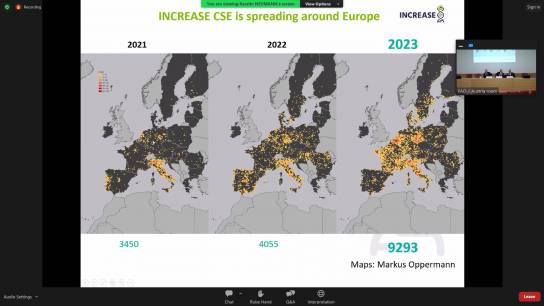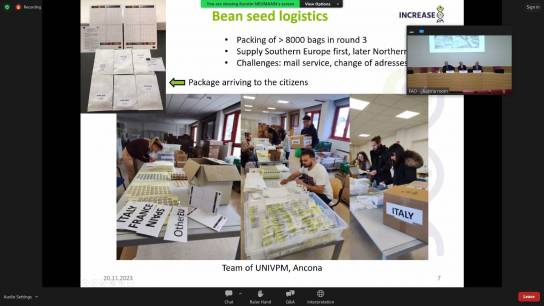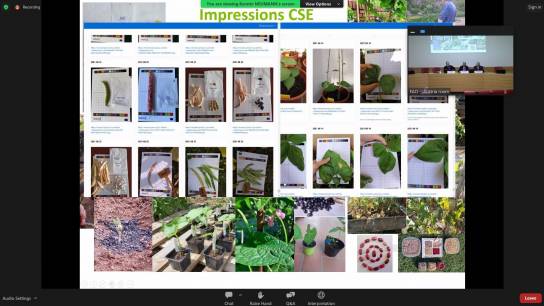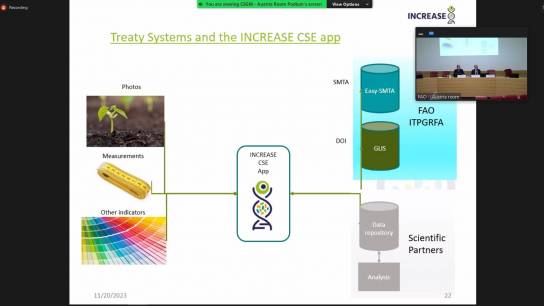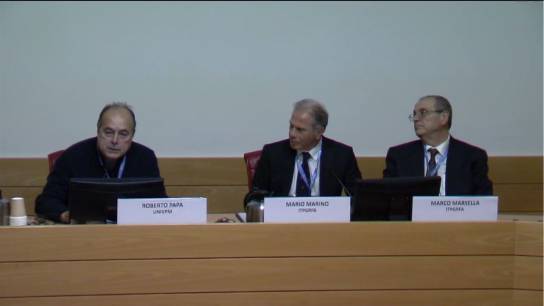
Saving the genetic wealth of plants in a decentralised way – INCREASE event at the Food and Agriculture Organization of the United Nations (FAO)
During the Tenth Session of the Governing Body of the International Treaty on Plant Genetic Resources for Food and Agriculture (ITPGRFA) INCREASE has held a side event on “Decentralized Conservation of Plant Genetic Resources”. Moderated by Mario Marino from the Food and Agriculture Organization of the United Nations (FAO), the event hosted as speakers Roberto Papa (INCREASE project coordinator, Università Politecnica delle Marche), Kerstin Neumann (coordinator of the INCREASE Citizen Science Experiment, Leibniz-Institut für Pflanzengenetik und Kulturpflanzenforschung), Marco Marsella (ITPGRFA, Food and Agriculture Organization of the United Nations), Emanuele Frontoni (INCREASE Citizen Science app and AI applications, Università Politecnica delle Marche and University of Macerata) and Sukhjiwan Kaur (DEECA, AgriBio and member of the INCREASE Stakeholder Consortium).
Through its Citizen Science Experiment, the INCREASE project has successfully tested a decentralised approach to conserving the genetic wealth of plants, called plant genetic resources. As part of the experiment, European citizens received seeds of more than 1,000 varieties of the common bean (Phaseolus vulgaris) for three consecutive years up until 2023. During that time more than 16,000 citizens registered for the experiment, using the dedicated INCREASE Citizen Science App, called “INCREASE CSA”. Via the app, the citizens also signed the Standard Material Transfer Agreement (SMTA), which is required to comply with the International Treaty on Plant Genetic Resources for Food and Agriculture and which furthermore enabled the INCREASE team to keep track of which bean varieties are being conserved by whom.
While agrobiodiversity is in steady decline, it is paramount to find new and efficient ways to conserve the wealth of genetic diversity that the plants that feed us have to offer. This is especially crucial in times of the pressing environmental challenges plants need to adapt to, now more so than ever, such as resistance to heat and drought. The INCREASE Citizen Science Experiment, using the example of the common bean, has shown that the decentralised approach not only supports conserving a large number of varieties, but also enables a better understanding of each variety’s development in different environmental conditions. Throughout the experiment, participants document the development of their beans through uploading photos and scoring specifically selected traits in the “INCREASE CSA” app. This enables the INCREASE team to scientifically investigate those traits, using data at a scale that would not be available without the help of citizens and without having access to information from diverse geographical locations.
At the event, project coordinator Roberto Papa proposed to the international community the development of communities of practice to further develop this decentralised conservation system. Decentralised conservation should not replace the conventional and well-established ex situ conservation approach, it should rather complement it. The INCREASE results indicate that decentralised conservation of genetic resources could be a crucial strategy to promote future conservation and facilitate their sustainable and fair use. “The decentralised conservation system proposed by INCREASE is a powerful chance to tackle the huge challenges that we have in front of us, such as climate change, biodiversity loss and food insecurity,” Roberto Papa says.





